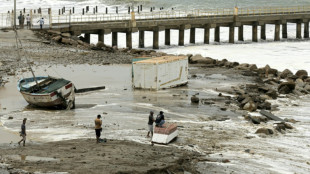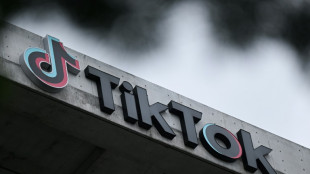Boeing's Starliner set for first crewed mission to ISS, in key test
After years of delays, Boeing's Starliner spaceship is finally set to ferry astronauts to the International Space Station (ISS) on Monday night, marking a crucial step for both the US aerospace giant and NASA's commercial outsourcing strategy.
The flight -- a final, crewed test before the capsule begins regular runs to the orbiting outpost -- comes at a critical time for Boeing, a century-old conglomerate engulfed in a growing safety crisis affecting its passenger jet division.
The stakes are also high for NASA: Having a second reliable option for human space flight in addition to SpaceX's Dragon vehicles is really important, said Dana Weigel, manager of the agency's International Space Station program.
Astronauts Butch Wilmore and Suni Williams are set to take off from Cape Canaveral Space Force Station at 10:34 pm Monday (0234 GMT Tuesday). Weather conditions are 95 percent favorable for launch.
Starliner will be propelled into orbit by an Atlas V rocket made by United Launch Alliance, a Boeing-Lockheed Martin joint venture.
Once in space, the crew will take the helm, manually piloting the craft in a crucial test.
The astronauts, both Navy-trained space program veterans, have each been to the ISS twice, traveling once on a shuttle and then aboard a Russian Soyuz vessel. "It's going to be like going back home," Williams said ahead of the launch.
"(Safe) travels, star sailors," NASA chief Bill Nelson tweeted. "You are the pride of our great nation."
- Hiccups expected -
Starliner is scheduled to rendezvous with the ISS at about 0500 GMT Wednesday, kicking off a week-long stay. Tests will be performed to check if the capsule is working properly, and then Williams and Wilmore will reboard it to return home.
A successful mission would help dispel the bitter taste left by numerous setbacks in the Starliner program.
In 2019, during a first uncrewed test flight, the capsule was not placed on the right trajectory and returned without reaching the ISS.
"Two critical software defects were not detected ahead of flight despite multiple safeguards. Ground intervention prevented loss of vehicle in both cases," said NASA in the aftermath, chiding Boeing for inadequate safety checks.
Then in 2021, with the rocket on the launchpad for a new flight, blocked valves forced another postponement.
The empty vessel finally reached the ISS in May 2022. But problems since then -- including weak parachutes and flammable tape in the cabin that needed to be removed -- caused further delays to the crewed test flight, necessary for the capsule to be certified for NASA use on regular ISS missions.
NASA associate administrator Jim Free had predicted the mission would not be hiccup-free.
"We certainly have some unknowns in this mission, things we expect to learn, being a test mission. We may encounter things we don't expect," Free said, noting that Starliner is just the sixth US-built class of vessel for NASA astronauts.
- Exclusive club -
SpaceX's Dragon capsule joined that exclusive club in 2020, following the Mercury, Gemini, Apollo and Space Shuttle programs.
The last shuttle flew in 2011, leaving NASA astronauts reliant on Russian Soyuz rockets for rides to the orbital outpost.
In 2014, the agency awarded fixed-price contracts of $4.2 billion to Boeing and $2.6 billion to SpaceX to develop the capsules under its Commercial Crew Program. This marked a significant shift in NASA's approach, as it moved away from owning space flight hardware and instead began paying private partners for their services.
Once Starliner is fully operational, NASA hopes to alternate between SpaceX and Boeing vessels to ferry astronauts to the ISS.
Even though the ISS is due to be mothballed in 2030, both Starliner and Dragon could be used to taxi humans to future private space stations, which several companies are working on.
Y.Schmitz--RTC



